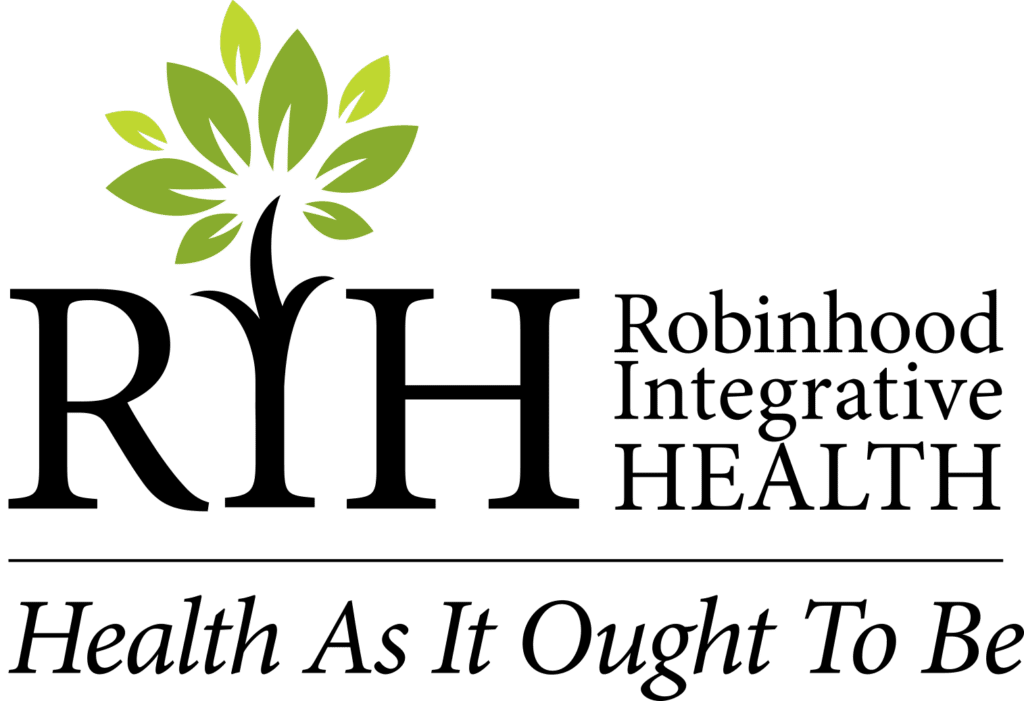Trusted Integrative Medicine Doctors in Winston-Salem, NC
Robinhood Integrative Health aims to inspire change in the medical system, offering our patients, both children and adults, a chance at better health that they deserve. Click the button below to book an appointment in our Winston-Salem clinic and let our doctors assist you today!
What We Do and How We're Different
Conditions We Treat
Hypothyroid
There’s more to it than just Synthroid. Full thyroid evaluation including Free T3, Reverse T3, and Thyroid antibodies.
Menopause
Feel the benefits of bio-identical hormones. We check Pregnenolone, DHEA, Testosterone, Estradiol, and Progesterone.
Low Testosterone
Get your Mojo back. We make sure testosterone levels are optimized for a healthy individual not just “normal”.
Adrenal Fatigue
Yes, it’s real and yes, chronic stress can cause it. We like the Cortisol Stim Test for monitoring.
Chronic Fatigue
So many factors can cause fatigue and it’s our job to figure it out. Don’t worry, we won’t just say you’re depressed.
Weight Loss Resistance
It is much more complicated than “Eat Less and Exercise More”.
Lyme Disease
This does exist in the Southeast and can cause so many problems. That’s why it is called the “Great Mimicker”.
Migraines
We don’t think that it is normal to have a headache or migraine everyday.

INTRODUCING
RIH Pediatrics

Comprehensive Wellness, Chronic and Acute Care for Children
We are so excited to be your trusted resource and advocate for your child’s optimal health and well being physically, emotionally, mentally and spiritually.
At RIH, we seek to listen and adapt to the needs of our community and patients as they arise. One message we hear quite often is that traditional pediatrics is not serving families who are seeking to raise their children with wellness as a primary focus.
Our pediatric team, Dr. Nicole Craven and Caroline Jones, PA, reflects our strategy that parents know their children best and wellness for kids is not as simple as a routine child check-up. Our goal, as a wellness team, is to address many key aspects of prevention, educate and empower parents, and help each child thrive in and out of our office.
How It All Started
Our Dedicated Winston-Salem Doctors are Ready to Serve You!
Integrative medicine is all about challenging what we know about healthcare. With that in mind, our Winston-Salem physicians offer healthcare services that combine conventional and alternative treatments, giving our patients the benefit holistic treatment offers.

We’re changing the way you go to the doctor


Get your personalized treatment

We do our best to make this affordable
What Our Patients Are Saying:
Looking For Something Particular?
Weight Loss
We have a comprehensive weight loss program that evaluates thyroid, insulin/blood sugar, as well as leptin resistance.
Bio-Identical Hormone Therapy
We are knowledgable on all forms of bio-identical and testosterone replacement therapy including creams, pellets, and injections.
Chronic Fatigue
This is our most common complaint. It’s okay to be sick and tired of feeling sick and tired.
Children and Adolescents
We now have a Pediatric team that can see kids 2 and up for wellness and problem based visits.
A Friendlier Healthcare Experience
Root Causes We Fix

- Food Sensitivities: Got gluten
- Heavy Metals: I'm not talking about the music
- Nutritional Deficiencies: More than Vit D and Iron
- Mold Toxicity: This stuff is nasty
- Infections: Epstein Barr, Mycoplasma, Chlamydia, Yeast.....
- Hormone Imbalances: Got to keep them balanced
- Insulin Resistance: This is nearly as bad as diabetes
Outside The Box Tools

- Dessicated Thyroid: We like NatureThroid and Armour
- Bio-Identical Hormones: Same hormones your body makes
- IV Nutrition: Sometimes it's better to bypass the gut
- Chelation: Let's get rid of those toxins and heavy metals
- PEMF: Pulsed Electromagnetic Field Therapy...enough said
- Far Infrared Sauna: For those who love to sweat
- Natural treatments: Herbs, essential oils, supplements



















